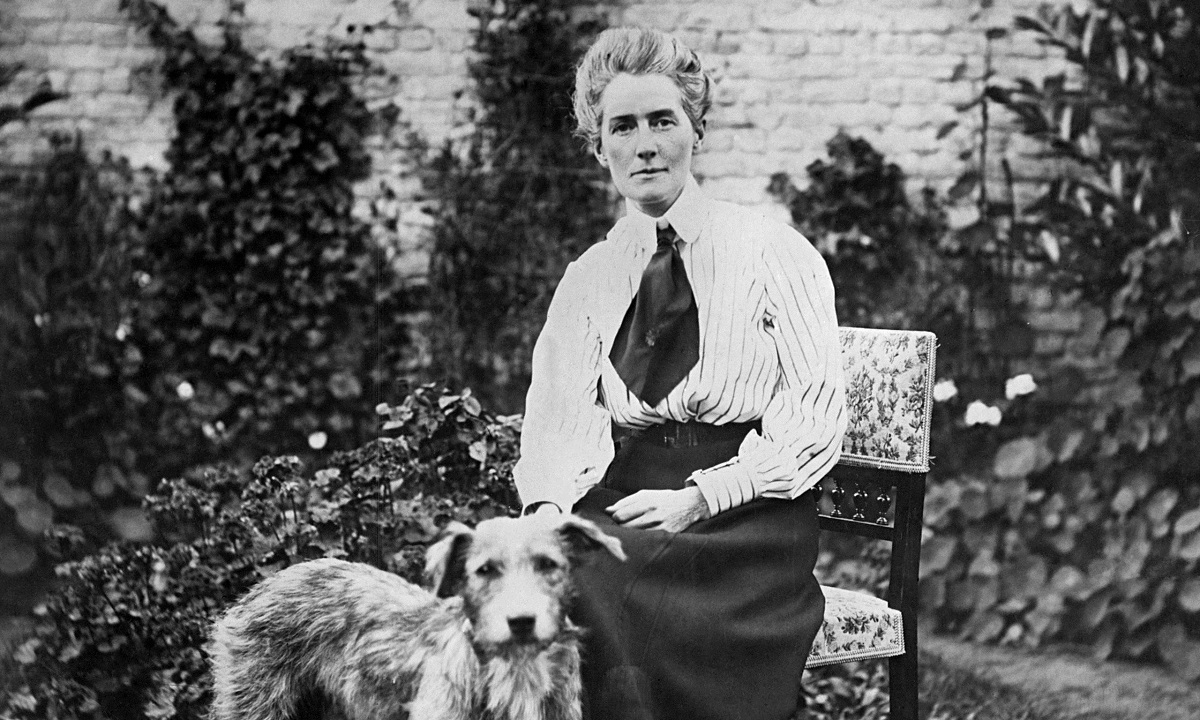
EDITH CAVELL was a nurse who saved the lives of soldiers on both sides during the First World War.
Her actions saw her executed by the Germans.
The centenary of her death is on October 12 and a new book commemorates her life.
We spoke to author Catherine Butcher about the nursing heroine’s life.
What is your background? I was born in Edinburgh and moved to Sussex to train as a newspaper journalist. Why did you decide to write a book about Edith? I’m Communications Director for HOPE. We work with churches of all denominations helping to encourage mission. I was finding stories of First World War heroes for our Greater Love project when I was struck by Edith’s confidence in the face of death. What was Edith’s background? She was born in Norfolk and her father was vicar of a rural church. Her first 10 years of work were as a governess including one job with a family in Brussels. She resigned from the post in Brussels to nurse her father when he fell ill. She applied to the Fountain Fever Hospital in Tooting and started work as a nurse in December 1895. How influential was she? She was recruited by a leading surgeon in Belgium to pioneer nursing training in Brussels. Dr Depage wanted the school to be run in the style of Florence Nightingale’s, but they needed a matron fluent in French. Edith fitted the bill perfectly and went on to establish the school, recruiting and training nurses to staff Belgium’s hospitals.
How did she help soldiers? When war broke out, Edith was at home visiting her mother but chose to return to Belgium to care for the wounded, both German and Allied. After the Battle of Mons, the Belgian resistance movement began to help British soldiers. Two British escapees were directed to Edith Cavell’s nursing training school and she took them in without hesitation. Despite warnings, Edith wouldn’t stop. She was careful not to involve the other nurses. She said if she turned away an Allied soldier who was then caught and shot, it would be her fault.

When and how was she caught? On August 5, two of the German political police searched the training school and ransacked Edith’s office. She was arrested with one of her nurses. The pretext for taking them into custody was a letter from England with the American consulate’s stamp on the back. It was illegal for the consulate to deliver correspondence for the “enemy”. They were driven to police headquarters for questioning. The other nurse was released. Edith was not. What was the reaction to her execution? Afterwards, the Bishop of London commented that Britain no longer needed a recruitment campaign. Edith’s execution was enough. The number of volunteers joining up had been around 6,000 a week at that point in the war. In the week ending October 27, they jumped to 11,423, with more than 10,000 volunteering each week through to the end of November. What impact did her death have? As reports appeared in newspapers around the world, Edith’s story began to shake America out of its neutral stance. Prime Minister Lord Asquith told the House of Commons: “She has taught the bravest man among us the supreme lesson of courage.” What is being done to mark her centenary? The Royal Mint has issued a commemorative coin and there will be a fortnight of special events in Norwich next month including a service at Norwich cathedral where Edith is buried. Edith Cavell: Faith Before The Firing Squad, from Lion Hudson.

Enjoy the convenience of having The Sunday Post delivered as a digital ePaper straight to your smartphone, tablet or computer.
Subscribe for only £5.49 a month and enjoy all the benefits of the printed paper as a digital replica.
Subscribe